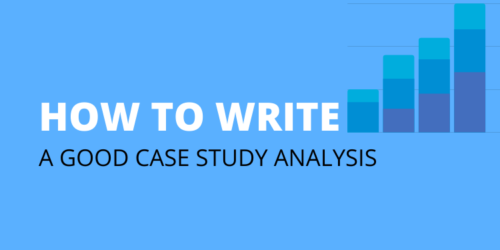Information Report Assignment

Information Report on DeepMind Technologies Limited
Table of Contents
III. Products & Services of DeepMind. 4
III.c DeepMind Ethics & Society. 5
V. Challenges faced by DeepMind. 6
VI. Current Market Position of DeepMind. 6
VII. Predictions on DeepMind’s Future. 6
I. Introduction
DeepMind Technologies Limited is a UK-based startup founded in 2010 by three British entrepreneurs. DeepMind’s main focus is artificial intelligence (AI) management and development. They develop AI software and algorithms for teaching computers to mimic the thought and decision-making processes of human brains. The company was relatively unknown until it was acquired in 2014 by Google for around $600 million.
This report aims to provide brief information on DeepMind, its founders, products and services, successes and challenges the company faced along its journey, and the company’s current position in the AI industry. It also discusses predictions of the company’s future potential based on some news and articles published about DeepMind.
II. Founders of DeepMind
Founded in London in 2010, DeepMind was idealized by Dr. Demis Hassabis, Mustafa Suleyman, and Shane Legg (DeepMind (Ed.), (n.d)).
As reported by Shead from Business Insider, Demis Hassabis had shown some signs of being a prodigy child at a very early age (2017). At the age of thirteen, he was a chess master, and the second-highest-rated player in the world. Hassabis was accelerated through school and completed his studies two years early than his peers. He started his career at the age of seventeen when he co-designed and programmed a video game that was released in 1994 which was a total success (Gibbs, 2014). He graduated from Queens’ College Cambridge with double honors at the age of twenty.
Besides being childhood friends, Mustafa Suleyman and Demis Hassabis followed completely different academic paths. Suleyman was invited to study philosophy and theology at the University of Oxford when he was seventeen years old, but dropped out two years later and launched the Muslim Youth Helpline. Today, he is a known and respected activist entrepreneur that stands out from many of today’s tech founders, because of his engagement and commitment to social causes (Shead, 2017).
Shane Legg, the third founder and chief scientist of DeepMind, is responsible for deciding where the company will focus its efforts next, and leads the company to work on AI safety, by developing an emergency strategy to turn off the machines in case DeepMind’s AI starts to behave inappropriately.
When these three tech geniuses came together, they started working on artificial intelligence technology using old video games, like Atari. Now the AI program they created does not only teach itself how to play the games but also how to master them.
Currently, the founders continue to be based in London where DeepMind headquarters is also located, but they have additional research centers in Canada and the United States as well (DeepMind (Ed.), (n.d.)).
III. Products & Services of DeepMind
Being an AI company working with machine learning technology, DeepMind develops AI-based software programs that teach computers to solve complex problems on their own without explaining or instructing them how to do so. DeepMind’s applications can be summarised as follows:
III.a DeepMind Health
As a London-based startup founded by British entrepreneurs, DeepMind’s main focus is the UK’s national healthcare system. When the founders found out that people are dying in UK from curable diseases just because their test results are not interpreted accurately and/or they are not treated in time, they founded DeepMind Health to address the UK’s need of quick and accurate treatment for patients. Under DeepMind Health, doctors and clinical academics are working with IT and tech experts, and they are all trying to improve the National Health Service (NHS) of UK to serve with AI to patients, nurses and doctors. DeepMind Health currently has AI and mobile tools that allow hospitals to accelerate the test and treatment processes for patients.
Streams, a secure mobile app for clinicians, was created by DeepMind Health team in 2015. It has a main focus to assist nurses and doctors with mobile technology by reviewing test results and sending immediate alerts when a patient deteriorates. It is not working with AI technology yet; thus, the company’s vision is to make Streams an AI-powered assistant for nurses and doctors.
Overall, DeepMind Health team defines their goals as helping to save lives, improve care and support the NHS system (DeepMind (Ed.), (n.d.)).
III.b DeepMind for Google
Following the acquisition of DeepMind by Google, DeepMind started to collaborate with Google’s in-house teams to improve Google’s products, services and operations worldwide. They announced a bunch of projects to date, all of which are gathered under “DeepMind for Google”.
One of the projects run by DeepMind for Google is an AI-based management and controlling algorithm to improve the energy efficiency of Google’s data centres. As they achieved to autonomously manage cooling in Google’s data centres, Google recently announced that DeepMind’s AI recommendation system has reduced the energy they use for cooling in their data centers by 40%, which is an impressive rate (Marr, 2017).
Another outcome of DeepMind’s collaboration with Google is “WaveNet” which generates realistic sounding speech to Google’s virtual assistant called Google Assistant. WaveNet analyses recordings of real, human speeches to train itself to simulate human voice, intonation and stress. It produces its own waveforms. Industry followers confirm that after Google bought DeepMind, Google Assistant is sounding more realistic than before (Meyer, 2017), and its voice is now indistinguishable from humans (Gershgorn, 2017).
Another project generated by Google’s DeepMind is improved Google Play experience for mobile phone users. Working with the Google Play team, DeepMind now allows Google Play Store to give more customised and personalised recommendations to app users (DeepMind (Ed.), (n.d.)).
Lastly, they teamed up with Android (Google’s mobile operating system) to optimise mobile phones’ battery performance. DeepMind’s AI uses a smart battery management system based on machine learning technology which predicts users’ moves, such as what apps a user will need next, how much screen brightness they prefer in a different set of surroundings, etc. With this project, they aim to provide each user with more personalised and reliable mobile experience.
III.c DeepMind Ethics & Society
DeepMind Ethics & Society is a research application and unit of DeepMind. While AI is heavily criticised by a certain part of the society in today’s world, DeepMind is also having its share of such critiques. DeepMind Ethics & Society aims to identify the key ethical challenges that AI technology in general is facing and provide solutions. They declare that all of DeepMind’s AI applications will remain under human control, and be used for socially beneficial purposes. Under this research unit, they focus on emerging topics such as AI morality and values, managing AI risks, addressing the world’s problems with AI, etc. (Shead, 2017).
IV. Successes of DeepMind
DeepMind is using its AI Algorithms to invent solutions that have been beneficial both in Applied and in Research settings.
IV.a Applied Setting
DeepMind has carried out impressive work in the health sector in the UK, where they partnered with Moorfield Eye Hospital to create a program that can detect early signs of acute eye disorders. The current OCT (Optical Coherence Tomography) used for eye tests, due to its complexity, and accompanied by a large number of patients to be treated, is time-consuming. This program, therefore, has solved this issue. Doctors are also able to sort out cases by order of urgency using the program.
DeepMind’s Streams application is another success achieved by the company. Marr from Forbes describes the app as a product that has brought modern “mobile-first communications (i.e. mobile technology)” into the National Health Services in the UK (2017). The company’s vision is to make Streams an AI-powered assistant which will help nurses and doctors with reviewing test results and sending immediate alerts.
A nurse working in the UK describes Streams as “phenomenal” based on its capabilities on detecting early signs of kidney failure. According to her, Streams made their test and treatment process quicker and more flexible as they receive direct alerts to their mobile phones without the need to physically check results themselves (Crouch, 2017).
Another accomplishment of DeepMind is its “WaveNet” application software which is used on Google Assistant, a communication software owned by Google. The WaveNet model has been able to achieve more natural sounding voices for the assistant on this application (Meyer, 2017).
IV.b Research Setting
In the area of Research, DeepMind has made remarkable advancements in artificial intelligence by creating a computer program called “AlphaGo” to master the Chinese game of Go without human intervention (Marr, 2017). AlphaGo has won two games already against the world’s best Go players. It has been acknowledged as one of the company’s great achievements by Professor Michael Wooldridge, chair of the IJCAI awards committee, and hence their receipt of the converted “Nobel Prize for IA” awarded by the International Joint Conferences on Artificial Intelligence (Gorey, 2017).
During an interview conducted by Gorey of Silicon Republic after receiving the award, Deepmind’s CEO, Demis Hassabis, expressed that the company is eager to continue solving further complex challenges that exist in science and medicine.
V. Challenges Faced by DeepMind
Despite the various accomplishments of the company, in 2016, the introduction of the Streams app by DeepMind was accompanied by controversies related to the access given them by the Royal Free hospital to their numerous patient data files while testing the app. The act was described as being illegal and unethical by the UK’s Guardian (Hern, 2017) and has raised public concerns regarding the safety of their data (Evenstad, 2018).
Streams was also subjected to investigations by the Information Commissioners Office of the UK. An independent review requested that DeepMind should disclose their motives clearly to the public to avoid the notion that the company exists solely to make profits (Evenstad, 2018)
Following these negative headlines, DeepMind committed to keeping patients in the loop about its health plans through regular engagement sessions with them (Hern, 2019).
VI. Current Market Position of DeepMind
Being a subsidiary under Alphabet Inc., DeepMind is currently on the top list as one of the best artificial intelligence companies in the world. In 2019, a biennial global competition called Critical Assessment for Protein Structure Prediction (CASP) ranked DeepMind’s AI models as the first and best so far use in protein structure prediction (DeepMind (Ed.), (n.d.)).
VII. Predictions on DeepMind’s Future
DeepMind researchers recently announced progress with the technology called AlphaMind technology. This technology predicts 3D models of protein by using gigantic genetic data. This new progress is by far better and more accurate compared to other technologies and it can also assist in solving biological challenges. It will also help scientists diagnose and treat diseases caused by an unfolded protein such as Cystic Fibrosis or Huntington. Early discovering of this could improve a better understanding of the body and how it functions (DeepMind (Ed.), (n.d.)).
Another future prediction with DeepMind is acute kidney injury (AKI). AKI is a disease, which suddenly causes the kidney of an infected person to stop functioning, and late detection could lead to death. In the United Kingdom, over 100,000 people diagnosed with diseases die annually. The DeepMind team currently collaborated with a US-based company to develop a technology that can predict AKI failure in patients before it gets worse. This technology could in the future give doctors 2 days head starts on the illness. DeepMind believes that early preventive treatments in the future will save more lives and avoid the need for painful kidney dialysis procedures that patients are subjected to undergo (DeepMind (Ed.), (n.d.)).
Waymo is a sister company with DeepMind and they currently teamed up to train and improve Waymo self-driving cars by using the same techniques that were used to teach artificial intelligence bots on how to play StarCraft II. This new technique will not only help improve the ability of the vehicle to spot objects but will also minimize the vehicle rate of false-positive pedestrians by 24% (Hamilton, 2019).
Lastly, DeepMind AI also predicted that an algorithm could access eye scans faster and accurate. This is said to be the first breakthrough AI in the health system. It is trained to spot indicators of eye diseases and recommend how patients should be referred for care. This makes it easy for an ophthalmologist to view each retina distinctive layers more clearly within a short period (DeepMind (Ed.), (n.d.)).
VIII. Conclusion
With further development and advances in AI technology, it is the most reasonable to expect that we will hear more about DeepMind (and other AI companies). For some, AI is a war against computer domination, but as in DeepMind case, it can be of extraordinary benefit to the world. Yet, it must be held to the highest ethical standards. For now, DeepMind seems working for the sake of us, human beings, and according to Marr from Forbes, it is making the world a smarter place (2017).
References
Crouch, H. (2017). Google DeepMind’s Streams technology branded ‘phenomenal’. Retrieved July 31, 2019, from https://www.digitalhealth.net/2017/12/google-deepmind-streams-royal-free/
DeepMind (Ed.) (n.d). About DeepMind Health. Retrieved July 31, 2019, from https://deepmind.com/applied/deepmind-health/about-deepmind-health/
DeepMind (Ed.) (n.d.). About Us. Retrieved July 31, 2019, from https://deepmind.com/about/
DeepMind (Ed.) (n.d.). AlphaFold: Using AI for scientific discovery. Retrieved July 31, 2019, from http://www.deepmind.com/blog/alphafold/
DeepMind (Ed.) (n.d.). DeepMind and Waymo: How evolutionary selection can train more capable self-driving cars. Retrieved July 31, 2019, from https://deepmind.com/blog/how-evolutionary-selection-can-train-more-capable-self-driving-cars/
DeepMind (Ed.) (n.d). Major milestone for the treatment of eye disease. Retrieved July 31, 2019, from https://deepmind.com/blog/moorfields-major-milestone/
DeepMind (Ed.) (n.d.). Using AI to give doctors a 48-hour head start on life-threatening illness. Retrieved July 31, 2019, from https://deepmind.com/blog/predicting-patient-deterioration/
Evenstad, L. (2018). DeepMind Health must be transparent to gain public trust, review finds. Retrieved July 31, 2019, from https://www.computerweekly.com/news/252443164/DeepMind-Health-must-be-transparent-to-gain-public-trust-review-finds
Gershgorn, D. (2017). Google’s voice-generating AI is now indistinguishable from humans. Retrieved July 31, 2019, from https://qz.com/1165775/googles-voice-generating-ai-is-now-indistinguishable-from-humans/
Gibbs, S. (2014). Demis Hassabis: 15 facts about the DeepMind Technologies founder. Retrieved July 31, 2019, from https://www.theguardian.com/technology/shortcuts/2014/jan/28/demis-hassabis-15-facts-deepmind-technologies-founder-google
Gorey, C. (2017). DeepMind team behind AlphaGo wins inaugural ‘Nobel Prize for AI’. Retrieved July 31, 2019, from https://www.siliconrepublic.com/machines/deepmind-alphago-marvin-minsky-award
Hamilton, I. A. (2019). DeepMind is teaching Google’s self-driving cars to get smarter and spot pedestrians better. Retrieved July 31, 2019, from https://www.businessinsider.com/deepmind-is-teaching-googles-self-driving-cars-to-get-smarter-2019-7
Hern, A. (2017). Google DeepMind 1.6m patient record deal ‘inappropriate’. Retrieved July 31, 2019, from https://www.theguardian.com/technology/2017/may/16/google-deepmind-16m-patient-record-deal-inappropriate-data-guardian-royal-free
Marr, B. (2017). How Google’s Amazing AI Start-Up ‘DeepMind’ Is Making Our World A Smarter Place. Retrieved July 31, 2019, from https://www.forbes.com/sites/bernardmarr/2017/02/02/how-googles-amazing-ai-start-up-deepmind-is-making-our-world-a-smarter-place/#682c2cacdfff
Meyer, D. (2017). Here’s Why Google’s Assistant Sounds More Realistic Than Ever Before. Retrieved July 31, 2019, from https://fortune.com/2017/10/05/google-assistant-deepmind-wavenet-speech-ai/
Shead, S. (2017). DeepMind has launched a new ‘ethics and society’ research team. Retrieved July 31, 2019, from https://www.businessinsider.com/deepmind-has-launched-a-new-ethics-and-society-research-team-2017-10
Shead, S. (2017). The incredible life of DeepMind founder Demis Hassabis, the computer whiz who sold his AI lab to Google for £400 million. Retrieved July 31, 2019, from https://www.businessinsider.com/the-incredible-life-of-deepmind-cofounder-demis-hassabis-2017-5#and-new-zealander-shane-legg-who-was-another-postdoc-at-ucls-gatsby-computational-neuroscience-unit-19
Shead, S. (2018). Mustafa Suleyman: The liberal activist who cofounded Google’s £400 million artificial intelligence lab. Retrieved July 31, 2019, from https://www.businessinsider.com/mustafa-suleyman-the-lefty-activist-ensuring-google-deepmind-benefits-all-of-humanity-2017-12


